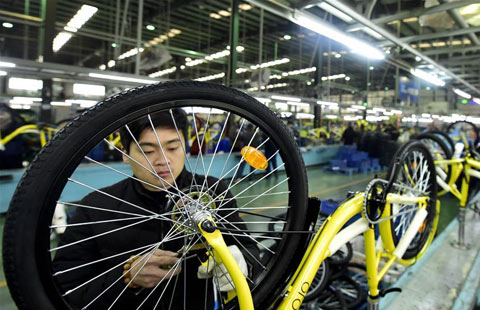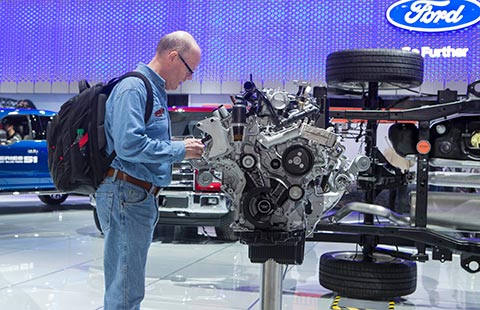Bankers see growth slowing, innovation rising
Chinese bankers forecast the nation's economic growth will be slower in the next three years. Technological innovation will be their new focus, according to a report co-released by the China Banking Association and PricewaterhouseCoopers on Friday.
The report was based on a survey of 1,794 Chinese bankers in 2016.
The report showed that only 41.2 percent bankers forecast China's economic growth rate will be between 6.5 percent and 7 percent in the next three years, and 54.8 percent of them think the GDP growth rate will be lower than 6.5 percent during the period.
"While the world is facing difficulty in finding a new economic growth driver, China is trying to dissolve excess capacity and develop new sources of economic growth," said Ba Shusong, chief economist at the CBA and the principal author of the report.
The report said technological innovation is likely to be the new focus area of Chinese bankers. Some 44.7 percent of them regard it as their top concern. Other big concerns include industry restructuring, ways of financing and the changes in regional economy.
"Technological innovation is important for optimizing and upgrading industrial structure and thus boosting the economy," Ba said.
The report also showed that 47.2 percent of respondents will increase investment in internet-based finance. And information technology-related risk will likely become their top concern, followed by legal risk and decision-making risk.
Blockchain technology is popular among Chinese bankers-75.4 percent of respondents think the technology can be used for payments and settlements. And 51.8 percent believe it is useful for digital currency.
Blockchain technology allows parties to carry out direct transactions without using an intermediary. This it does by providing a means for people to share reliable and tamper-proof lists of information known as distributed ledgers or blocks.
Given global economic uncertainty and restructuring of China's economy amid domestic challenges, Chinese banks are experiencing pressure of asset quality, said Jimmy Leung, banking and capital markets leader of PwC China.
But there are also opportunities for the banking industry to benefit from the nation's supply-side reforms involving differentiated services and the development of financial technologies, said Leung.
Chinese bankers also regard debt-to-equity swaps as an effective measure to dispose of nonperforming assets of banks. But there are also some concerns.
The survey showed 38.7 percent of respondents think the debt-to-equity swap mechanism cannot be widely implemented and 35.7 percent said the move will increase bank capital consumption.

















